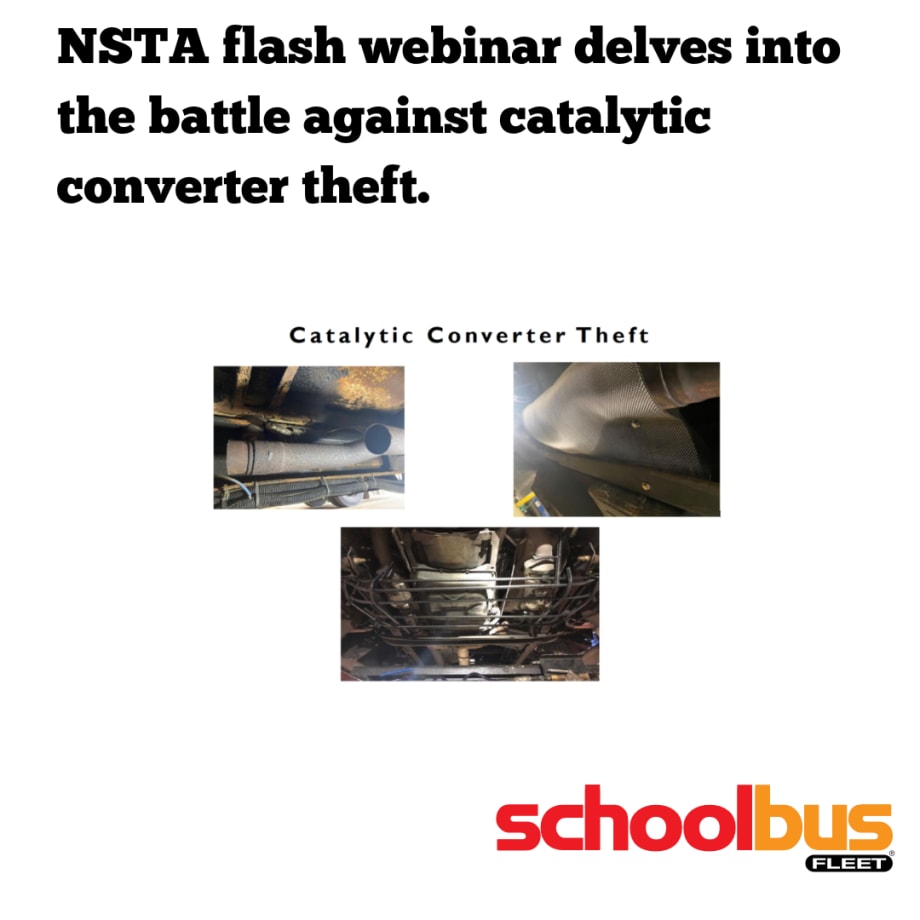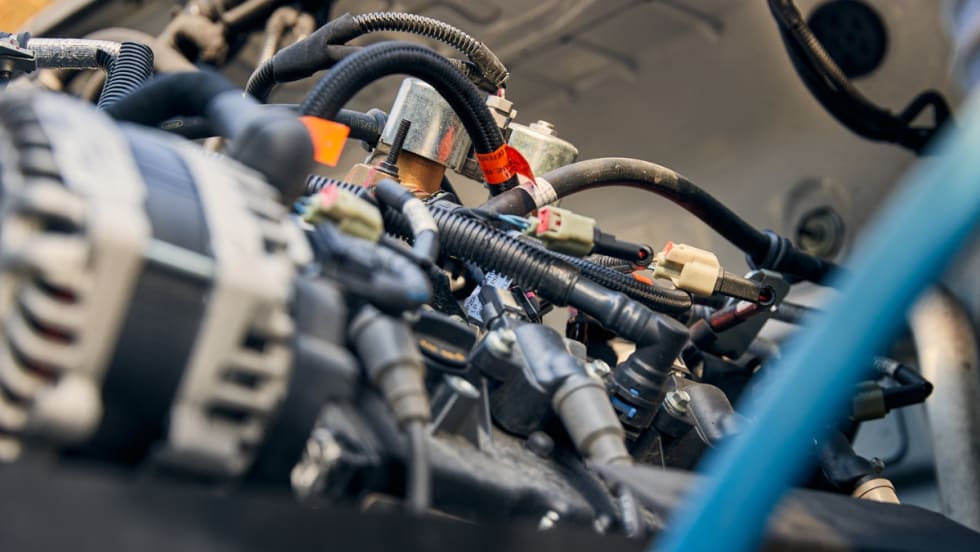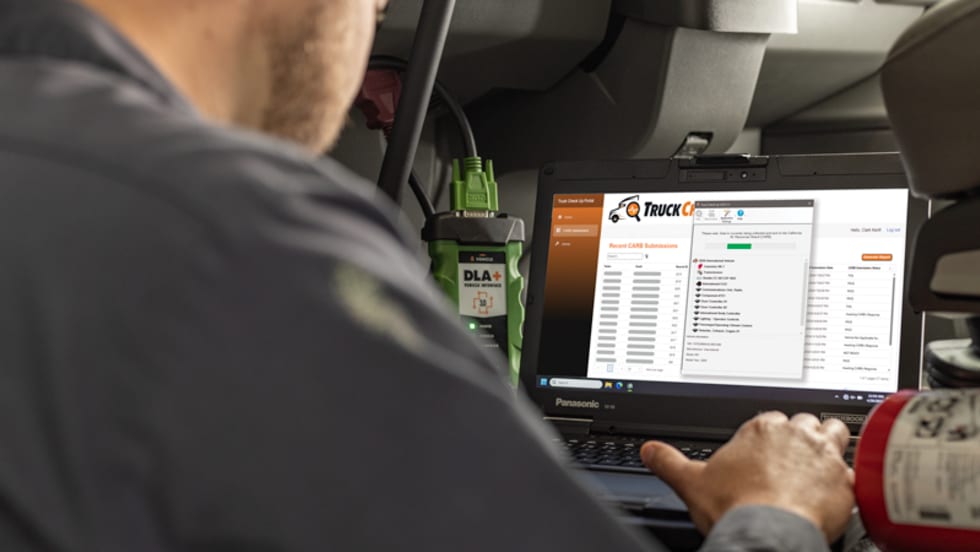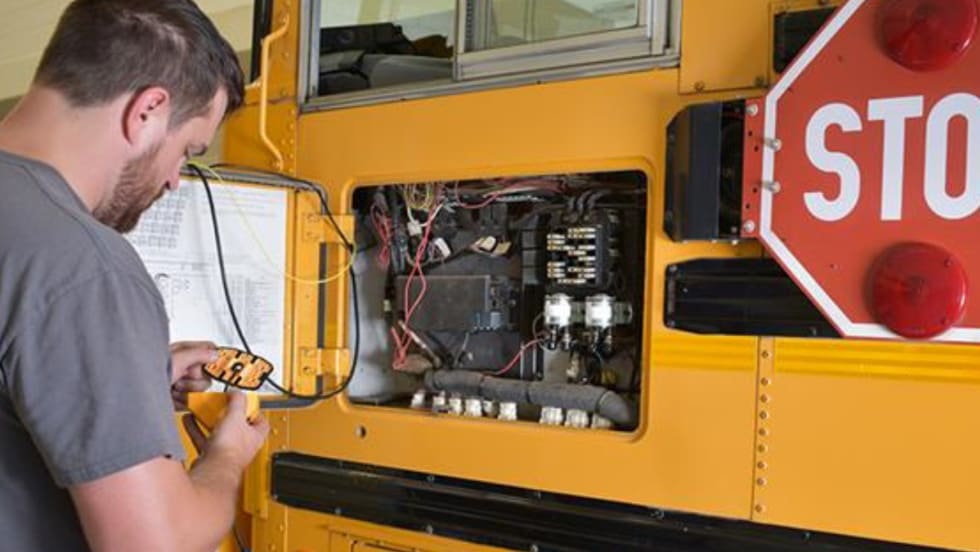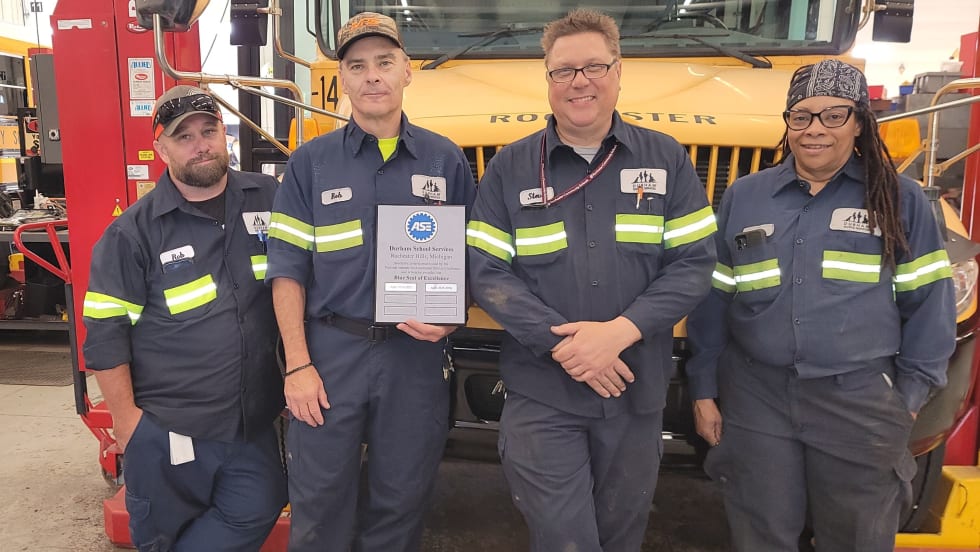Catalytic converters are an attractive target for thieves – and school bus fleet lots have proven an especially target-rich environment.
The National School Transportation Association held a flash webinar about this chronic problem, which sees the pollution control devices cut off gasoline and propane school buses for their precious metals.
John Finn, senior vice president of fleet maintenance with school bus contractor National Express, told webinar viewers that catalytic converter thefts can lead to massive expense, as well as the inconvenience of missed routes while waiting on back-ordered parts thanks to a struggling supply chain.
“We’ve tried everything” to stop thieves, Finn said. “Started out a couple years ago painting them, then we moved to engraving them. Now we cage them.”
He’s seen different versions of caging mechanisms – some homemade rather than engineered, using rebar. Other more professional designs use stainless steel mesh with tamper-proof nuts.
“Thieves can still get through it, but it slows them down quite a bit,” Finn said.
Making Life Difficult for Thieves
Linda Neff, director of Keystone Insurers Group’s school transportation program, said school bus depots are “prime targets for this” because thieves can strike multiple vehicles at once and it can be relatively easy to get under a bus, allowing them to remove a catalytic converter in a matter of minutes.
She’s not seeing any specific trends in locations or types of buses, but claims keep on coming, she said.
Neff ran down some best practices for defending against catalytic converter thieves:
Make it harder to access the lot, using signs, 8-foot-high fences, lighting, cameras, and alarms.
Hinder thieves under the bus with anti-theft devices, paint the converter with a fluorescent stripe, etch the converter, add more studs around the part, or add plates and guards – but make sure the hindrance doesn’t run afoul of local or state bus inspectors.
Get comprehensive insurance coverage so vehicles qualify for theft claims.
While these deterrents may be effective, it’s not always practical for companies to quickly ramp up these efforts. Dan Kobussen, owner of Kobussen Buses and president-elect of the NSTA, noted that lighting installation is backlogged six months and the fence installer may not get to his bus yard until next year. He recommended hiring security as “the quickest and easiest thing to do.”
Neff agreed, but Finn cautioned that bus yard operators who use hired security should spot check during the early morning hours to make sure no one’s sleeping on the job.
Fighting Back Against Catalytic Converter Theft
The National Insurance Crime Bureau noted skyrocketing catalytic converter thefts. Between 2019 and 2020, thefts jumped 325%, from 3,389 to 14,433. The converter, which contains precious metals such as platinum (worth about $880 per ounce today), palladium (worth about $2,000 per ounce today), or rhodium (valued today at $14,200 per ounce), turns environmentally hazardous exhaust into less harmful gases.
According to the NICB, recyclers typically pay $50 to $250 for a catalytic converter.
The NICB also reported that 26 states in 2021 proposed bills to help curb theft of these devices. Of those, 10 states enacted or tightened existing legislation, including:
Arkansas
Indiana
Minnesota
Missouri
North Carolina
Oregon
South Carolina
Tennessee
Texas
West Virginia
The law in Arkansas, South Carolina, and Texas requires scrap metal buyers to maintain records when they purchase used catalytic converters.
Indiana, Missouri, and Tennessee put catalytic converters on the list of valuable metals or vehicle parts.
Minnesota kicked off a program specifically for the investigation and prosecution of this crime.
North Carolina, Oregon, and West Virginia all now presume that someone found with a detached catalytic converter who can’t prove they own it is in possession of stolen goods.
Curt Macysyn, executive director of the NSTA, said the organization would follow up on state and federal initiatives whenever possible.




